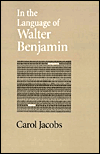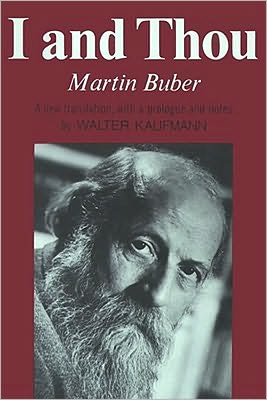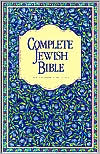In the Language of Walter Benjamin
If Walter Benjamin (with an irony that belies his seemingly tragic life) is now recognized as one of the century's most important writers, reading him is no easy matter. Benjamin opens one of his most notable essays, "The Task of the Translator," with the words "No poem is intended for the reader, no image for the beholder, no symphony for the listener." How does one read an author who tells us that writing does not communicate very much to the reader? How does one learn to regard what comes...
Search in google:
If Walter Benjamin (with an irony that belies his seemingly tragic life) is now recognized as one of the century's most important writers, reading him is no easy matter. Benjamin opens one of his most notable essays, "The Task of the Translator," with the words "No poem is intended for the reader, no image for the beholder, no symphony for the listener." How does one read an author who tells us that writing does not communicate very much to the reader? How does one learn to regard what comes to us from Benjamin as something other than direct expression? Carol Jacobs' In the Language of Walter Benjamin is an attempt to come to terms with this predicament. It does so by teasing out such guidelines for criticism as Benjamin seems to offer in The Origin of German Tragic Drama. Jacobs reminds us of Benjamin's distinction between truth and knowledge. She above all insists on his method of philosophical contemplation as performance, on a performance that demands precise immersion in the minute details of subject matter. In what follows, Jacobs practices this immersion in the details of Benjamin's performance as she reads some of his key works: the autobiographical Berlin Chronicle, the apparently biographical study of Proust, the fictional autobiographical story of "Myslowitz—Braunschweig—Marseille," and those essays on the theory of language so crucial to an understanding of Benjamin, "The Task of the Translator," "Doctrine of the Similar," and "On Language as Such and on the Language of Man." Carol Jacobs The essays that follow were written over the span of an academic lifetime. They are the intermittent attempts from the late sixties through the early nineties in which I have tried to understand Benjamin, or rather, to understand his work, to come to terms with it, though never as a totality. I would like to believe he taught me how to read in the practice of interrupting intention. The process of contemplation that these essays perform, then, is marked by an unceasing pausing for breath (sometimes for many years).
Acknowledgments Abbreviations 1 Letters from Walter Benjamin 2 Berlin Chronicle: Topographically Speaking 3 Walter Benjamin: Image of Proust 4 Benjamin's Tessera: "Myslowitz—Braunschweig—Marseille" 5 The Monstrosity of Translation: "The Task of the Translator" 6 Emergency, Break: Things Will Never Be the Same (Again) Notes Index AUTHOR BIO: Carol Jacobs is a professor of comparative literature and English literature at the State University of New York at Buffalo. Her books include Telling Time: Lévi-Strauss, Ford, Lessing, Benjamin, de Man, Wordsworth, Rilke and Uncontainable Romanticism: Shelley, Brontë, Kleist.
\ Carol JacobsThe essays that follow were written over the span of an academic lifetime. They are the intermittent attempts from the late sixties through the early nineties in which I have tried to understand Benjamin, or rather, to understand his work, to come to terms with it, though never as a totality. I would like to believe he taught me how to read in the practice of interrupting intention. The process of contemplation that these essays perform, then, is marked by an unceasing pausing for breath (sometimes for many years).\ \ \ \ \ BooknewsJacobs (literature, State U. of New York at Buffalo) attempts to come to terms with the question of how one reads an author such as Benjamin who tells us that writing does not communicate very much to the reader. She presents such guidelines for criticism as Benjamin seems to offer in , reminding us of his distinction between truth and knowledge. Insisting that his method of philosophical contemplation is a performance demanding precise immersion in minute details, she discusses key works such as , the apparently biographical study of Proust, "MyslowitzBraunschweigMarseille," and the essays on the theory of language. Annotation c. Book News, Inc., Portland, OR (booknews.com)\ \








